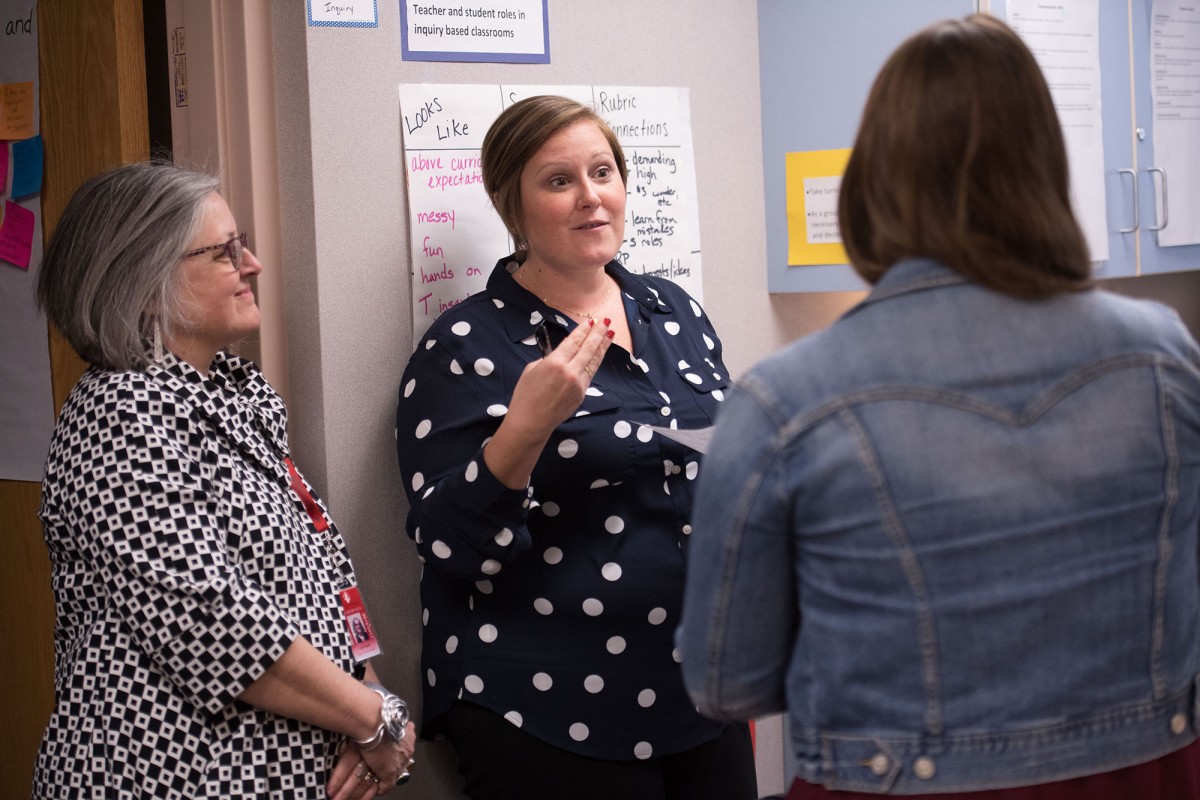Accelerate Learning Recovery Through Teacher Leadership
January 25, 2022

By: Melissa Blossom, Senior Specialist, NIET
I began my career as a classroom teacher in Marion Community Schools before growing into the principalship, when I quickly learned how challenging it is for one person to provide all of the instructional leadership in a building. This is even more true today with the additional demands principals face.
Creating increased support for administrators through leveraging teacher leaders – specifically ones with release time and training to lead professional learning and provide classroom coaching – is an essential element of successful schools. But the impact of teacher leadership may not be realized if administrators and teacher leaders are not working together as a team. In my experience, principals and teacher leaders working and learning together is what moves the needle on student learning.
This year, as part of the focus on learning recovery, I am collaborating alongside leaders in Muncie Community Schools to accelerate progress through teacher leadership. A state career ladder grant provided Muncie with initial funds to create two teacher leadership roles: master teachers who are released full-time to design professional learning and provide classroom coaching, observation, and feedback; and mentor teachers who remain full-time classroom teachers with three to four hours of release time to support professional learning and classroom coaching. Both master and mentor teachers participate in the leadership team for their school, building the principal’s capacity to lead, and direct his or her vision for instruction.
In my experience, principals and teacher leaders working and learning together is what moves the needle on student learning.
NIET's role as a partner is to support principals and their teams, including the master and mentor teachers working in nine high-need schools in Muncie, with the ultimate goal of learning recovery for students. Each school has an instructional leadership team, responsible for creating a long-range plan with yearly goals and benchmarks as well as goals for professional learning communities (PLCs). The leadership teams, which now include those teacher leadership positions, initially met every other week, but they have shifted to weekly meetings to allow for increased progress toward learning recovery. As part of these instructional leadership team meetings, educators look at student needs and student data, set learning goals – including for recovering lost learning – and identify follow-up support needed in classrooms.
In diving deep into the needs and strengths of each school, we found one common need across all the schools was to strengthen weekly PLCs with teachers. These meetings are critically important given the support that classroom teachers need in identifying and responding to student needs, but often we have found that PLCs are not structured for maximum impact. In Muncie, school-level leadership teams found that weekly PLCs were not consistently using data and student work to identify student needs or develop learning recovery strategies. In addition, PLC leaders, usually master teachers, did not have sufficient time or training to provide consistent and high-quality follow-up coaching in classrooms. One key need was the development of collaborative learning opportunities for teacher leaders themselves.
"Master teachers needed to have the time and an avenue to share ideas and challenges," said Assistant Superintendent DiLynn Phelps. "We fulfilled this need by creating our monthly Master Teacher Huddle where master teachers collaborate and share ideas, strategies, and resources."
These two-hour sessions include targeted coaching as well as training on how to use mentor teachers effectively, how to field test a strategy before bringing it to weekly PLCs, how to provide effective follow-up support, and how to develop long-range plans. By holding the meetings at a different school each month, master teachers have been able to visit schools they had previously never set foot in. They also get to see the environment and culture at other schools, which sparks ideas and conversations. The development of these skills in master teachers allows them to go back to their individual schools better able to support their principal, teachers – and ultimately, their students.
Through this partnership, Muncie's teacher leaders are delivering high-quality classroom coaching and weekly professional learning that improves teaching and learning. By creating opportunities for teachers to be leaders, we build capacity within school teams to focus on instruction and recover lost learning for students. These teacher leadership roles have been essential in responding to student academic needs as well as social and emotional needs, and I look forward to continuing to support schools with strengthening school leadership structures to improve student achievement.